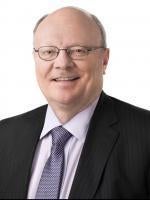Every February, we celebrate Black History Month, founded as Negro History Week by African-American scholar and historian Carter Woodson in 1926. He chose the second week in February to try to draw more attention to the Black History of the U.S. because that week coincided with two key birthdays: Abraham Lincoln (Feb. 12) and Frederick Douglass (Feb. 14). Eventually, the celebration became Black History Month and was first celebrated nationally in 1976 by President Ford. During Black History Month, we typically hear the names of the more prominent leaders of the Civil Rights Movement in U.S. history, names such as Dr. Martin Luther King, Jr., Justice Thurgood Marshall, Congressman John Lewis, and Rosa Parks. But let’s use Black History Month to expand our knowledge of Black history and learn a few more, but less well-known, names from our history.
Julius Rosenwald and Booker T. Washington
“Separate but Equal” was alive and well in the early part of 20th century in the South, as it had been upheld as constitutional by the U.S. Supreme Court in Plessy v. Ferguson in 1896, which led to even more Jim Crow laws being enacted. (When Nazi lawyers came to the South to study the Jim Crow laws, so they could take them back as model laws and enact them in Germany to discriminate against Jews, they said some of the Jim Crow laws were too severe and they couldn’t even get Nazi Germany to enact them!) Rosenwald was a philanthropist who amassed significant wealth by transforming Sears Roebuck into a retail powerhouse. He was invited to sit on the Board of the Tuskegee Institute in Alabama by its founder, Booker T. Washington.
Rosenwald and Washington devised a plan to use seed money from the Rosenwald Fund to build schools in the rural South to educate Black students who typically were not attending school. The local Black community would raise matching funds and often helped to build the schools, and the local public school system had to agree to fund the teachers’ salaries. The schools often included two classrooms, a teacher’s living quarters, and a shop to teach trades. But because it was a project funded by a Jewish philanthropist, often the source of the seed funding had to be kept a secret. Still, in many parts of the South, opposition was often fierce to educating Black children, and some schools were burned down. As a result, the fund began promising additional funds if arson was involved in the destruction of a school. By 1928, one-third of the schools educating African American students in the South were Rosenwald Schools. And between 1917 and 1932, the Rosenwald Fund helped to build almost 5,000 schools across the South that served to educate over 600,000 Black students. Among the more well-known graduates of Rosenwald Schools were Congressman John Lewis, poet Maya Angelou, and civil rights advocate Medgar Evers.
Bayard Rustin
Rustin was an openly gay Black man in the '50s and '60s, so he was seldom seen in public leadership positions of the Civil Rights Movement due to the rampant homophobia, but he was a close colleague of Dr. Martin Luther King, Jr. and an organizational genius.
He organized the March on Washington on Aug. 28, 1963 down to the smallest detail. They made all of the signs that marchers would carry so they could control the message. He recruited hundreds of volunteer marshals to help keep any distractors away, but also to control the marchers and make sure no property destruction occurred. He recruited 5,000 volunteers to help clean up the mall after the march so later that night you could not tell that close to 300,000 marchers had been there during the day. He attended the meeting where the agenda was planned. He came back and told Dr. King that he had some “bad news and some good news.” Dr. King asked, "What is the bad news," and Rustin told him the other members of the Big Six Civil Rights organizations felt like Dr. King was getting too much press attention, so they had pushed him to the end of the long list of speakers that day, meaning he would not speak until about 3:30 or 4 p.m. on a hot August afternoon on the mall, when many in the crowd likely will have wilted and gone home and the press members likely would have already left and started searching for a pay phone (yes, that was all they had, not cell phones) to call in their reports. Dr. King said, “Oh my, what is the good news?” Rustin replied, I am the official timekeeper, and no speaker can go over seven minutes, and he held up a stopwatch he would be using to keep every speaker to the agreed time limit. Then he told Dr. King, “Brother, you have the message that needs to be heard, so you can take as long as you need.” No speaker before Dr. King went longer than seven minutes, but Dr. King’s speech was 17.5 minutes long.
Mahalia Jackson
Yes, you may have heard her name as a singer, but it was not her marvelous singing voice that made a key difference at the March on Washington. Nowhere in Dr. King’s written speech for that day did he ever mention “I have a dream.” The speech was about lost economic opportunity for Black citizens, the “bounced check” of the American Dream. But, as he got the crowd with him as a good Baptist preacher could, in a call and response mode, Mahalia Jackson, who was near him, said to him, “Martin, tell them about the dream, tell them about your dream.” She had heard him give a version of “I Have a Dream” in Detroit a few weeks earlier. Hearing her comments, you can see Dr. King slide the pages of his prepared speech to one side, look at the crowd, and proclaim “I have a dream.” AND THE REST IS HISTORY! That speech is considered by many historians to be among the three most impactful speeches in U.S. history, along with President Lincoln’s Gettysburg Address and President Roosevelt’s Day of Infamy speech after Pearl Harbor was bombed.
Amelia Boynton
After the March on Washington in August 1963, the murder of four Black girls in a church in Birmingham later that year, and the assassination of President Kennedy in November, President Lyndon Johnson announced that passing the Civil Rights Act would be the way to honor President Kennedy. Johnson was a master at getting reluctant votes, even from fellow Southern members of Congress. He traded federal benefits, twisted arms, called in favors, and pressured enough folks to ensure that the Civil Rights Act was enacted in July 1964, mandating equal rights in employment and access to public facilities.
In December 1964, Dr. King and Andrew Young went to meet with President Johnson to urge him to now use his presidential power to push through enactment of the Voting Rights Act. But Johnson told them he had no power left, he had called in every favor and twisted every arm, and he could not support the VRA. As they were leaving the White House, Andy Young asked Dr. King, “What are we going to do?” Dr. King said, “We are going to get him the power.” Andy had no idea how they could do that. But, he said, like many times before and since, he should have had faith, like Martin did, that something would happen, something that would change the President’s mind and give him the power.
And, sure enough, a few days after they returned to Atlanta, there was knock on the door at Dr. King’s office. It was Amelia Boynton, a community organizer from Selma, Alabama, who came to ask Dr. King and the SCLC to help them register voters in Selma. As you know, on Sunday March 7, 1965, John Lewis and Hosea Williams (Dr. King was preaching at his home church in Atlanta that Sunday) led marchers in twos across the Edmund Pettus Bridge, only to be met with a violent assault by state troopers and sheriff’s deputies, knocking both John Lewis and Amelia Boynton to the ground and almost killing John. As the footage of the bloody assault on the peaceful marchers hit national TV news, it became known as “Bloody Sunday,” and the rest of the country was in shock. It caused President Johnson to call a Joint Session of Congress on March 15, 1965, carried on all three TV networks, and he announced that what happened in Selma was not what this country stood for, and he was calling on Congress to enact the Voting Rights Act! At the end of his speech, President Johnson said, “We shall overcome!” At seeing this, Dr. King turned from the TV to face John Lewis and Andy Young and others watching with him, with tears rolling down his face, and he said: “We are going to get the Voting Rights Act.” And they did, as it was signed by the President on Aug. 6, 1965.
U.S. District Judge Frank Johnson and Attorney Fred Gray
U.S. District Judge Frank Johnson was appointed to the federal bench by Republican President Dwight Eisenhower. Attorney Fred Gray represented the Selma marchers and got a
hearing in front of Judge Johnson, whom he knew was a fair and objective judge. After taking testimony from John Lewis and others about the bloody assault and after getting assurances from President Johnson that he would protect the marchers (because Governor Wallace had made it clear he would not), Judge Johnson issued an order allowing the marchers to march from Selma to Montgomery, the state capital, over a five-day period. President Johnson federalized the National Guard and sent in U.S. marshals and FBI agents to help protect the marchers. The U.S. District Courthouse in Montgomery bears Judge Johnson’s name, and rightfully so. And the City of Montgomery recently changed the name of Jefferson Davis Avenue to Fred Gray Avenue, the street Gray had grown up on, and rightfully so. And donors raised the money to pay the state-mandated fine of $25,000 for taking down the name of the Confederate president from the Montgomery street and replacing it with that of a legal civil rights legend, Attorney Fred Gray.
Black History Month is often celebrated in many communities around the US with events, speakers, book readings, movies, performances, parades, etc. Why not take advantage of these opportunities to learn more about U.S. history? Black history is U.S. history.




 i
i

